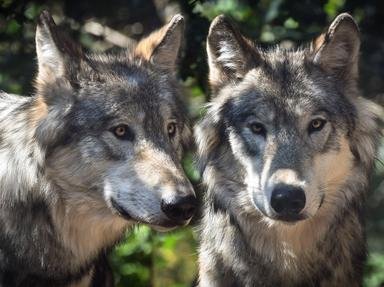
Spot the Dogs Trivia Quiz
Wild canids
No, this isn't about the lovable puppy created by Eric Hill - it's about canids. The animals you need to look for in this quiz are members of the Canidae family, but some cats have sneaked in there too. Can you spot the dogs?
A collection quiz
by Kankurette.
Estimated time: 3 mins.